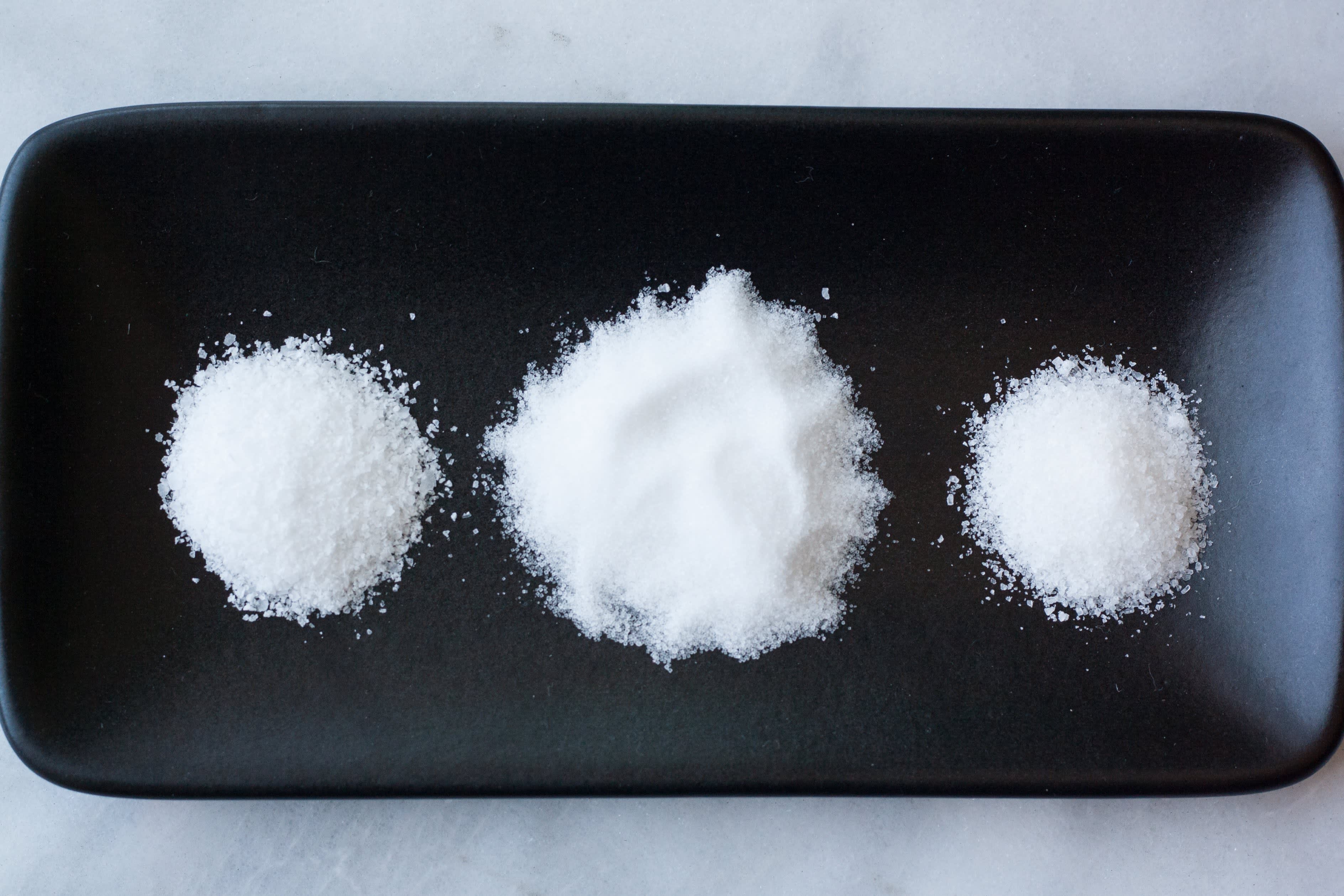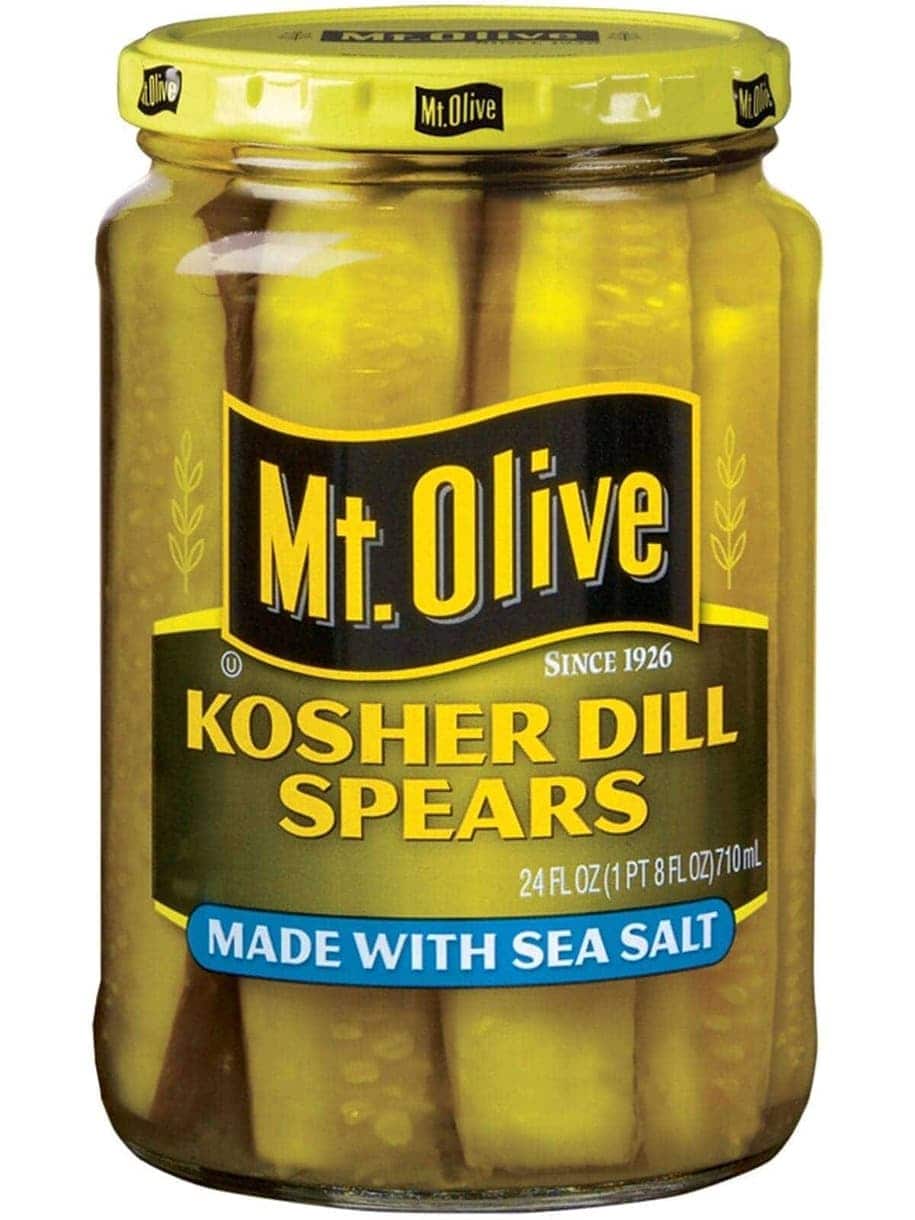
So a pickling salt is basically just pure salt that keeps your pickle brine or any other canning liquid crystal clear. When salt is mixed with hot water it helps remove the fattening and aromatic qualities of sugar from preserved foods.

It doesn t contain iodine or anti caking agents like table salt does.
Sea salt for pickling. Pickling salt tastes saltier than larger grained salts. This occurs for two reasons. The first is its smaller crystals that dissolve more quickly on the tongue.
The second reason that pickling salt will give you more saltiness is that there is more salt in a teaspoon of it than there is in a teaspoon of sea salt. Pickling salt sometimes called canning salt or preserving salt is pure granulated salt sodium chloride. Pickling salt does not contain anti caking ingredients which can turn pickling liquid cloudy or additives like iodine which can make pickles dark.
In addition pickling salt has fine granules that make it easy to dissolve in a brine. Pickling is a technique which preserves and protects food and its easy to do it with sea salt. The most common types of pickling are white wine vinegar and saltwater brine but you can use other combinations.
When salt is mixed with hot water it helps remove the fattening and aromatic qualities of sugar from preserved foods. Pickling salt is also referred to as canning salt. It is the best salt to use for all your pickling projects.
Pickling slat is fine granulated pure sodium chloride. Some people also call sea salt as pickling salt but the term sea salt is unregulated. As a result you might see many brands of common table salt use the words sea salt on their packaging.
A basic pickling solution which makes six cups includes. 3 cups distilled white vinegar apple cider vinegar or vinegar of choice. 1 1 cups sugar.
True salt sea salt. Sea salt has more health benefits than processed salts. The concept behind pickling salt is that they are finely ground to allow them to completely dissolve into the brine.
Accomplish this by purchasing a finely ground sea salt or grinding your coarse salt with a mortar pestle or electric spice grinder before use. A decent second choice. You can use sea salt as a pickling salt substitute.
It should work since it has none of the additives that make other salts less than ideal. However note that some sea salts will have more of some minerals than others. In some cases the mineral content may affect the flavor profile of pickled foods negatively.
Note also that with coarse sea salt you will run into the same problem as with kosher salt since the grain size will throw your measurements off. Pickling salt is a salt that is used mainly for canning and manufacturing pickles it is sodium chloride as is table salt but unlike most brands of table salt it does not contain iodine or any anti caking products added. A widely circulated legend suggested that iodisation caused the brine of pickles to change color.
However some anti caking agents are known to collect at the. So a pickling salt is basically just pure salt that keeps your pickle brine or any other canning liquid crystal clear. It will not look murky or otherwise unappealing.
Pickling salt is also cut as a fine grain so that it dissolves quickly in liquid. Pickling salt is a very fine grained and quite pure salt. It doesn t contain iodine or anti caking agents like table salt does.
The fine grains let it dissolve quickly making it good for making brines for pickling. Sea salt is salt produced by ev.